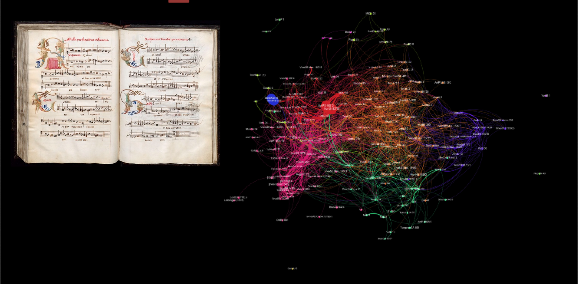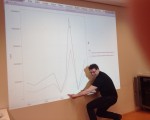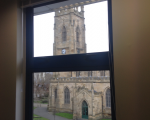In KnowEscape we have an unique combination of experts from vary different scientific fields. A red line and common shared interest is the discovery of structure and patterns in traces of cultural heritage. To analyze and understand human culture (past, present, future) is probably the biggest challenge for complexity research. To make measurements, models, algorithms, and simulations working for our understanding of society continues to trigger the imagination of scientists and scholars. One recent example is the almost heroic effort of Dirk Helbing and many others to coordinate complexity research across Europe in the FuturICT project. While in the social sciences the diffusion of methods from natural and computer sciences is well on its way – if still not without trail and error, controversies and debate, this is less so for the humanities. Having said this, there are initiatives which aim at the interface of complexity research and humanities. Computational approaches to Humanities, labeled as Humanities Computing, eHumanities, and Digital Humanities (DH) have a long history. With the raise of eScience in the 2000ths we see also eHumanities featured as an emerging field. See for instance the workshop “eHumanities – an emerging discipline” organized by Peter Wittenburg at an eScience conference 2008. One more recent example is the “High Throughput Humanities” satellite symposium at the “European Conference on Complex Systems ECCS2010,” 15 September 2010 at Lisbon University Institute ISCTE in Lisbon, Portugal (see http://hth.eccs2010.eu/), which papers appeared in Leonardo Transactions 2012 (see here, Project MUSE). Another example are the Leonardo satellite symposia Arts, Humanities and Complex Networks at the NetSci Conferences (see here for the last one). There is an increasingly shared understanding, that humanities or Digital Humanities, do not just wait to be ‘discovered’ by complexity research, but that their problems actually create challenges mathematicians, physicists, and computer scientists might not even have answers for. Just as in the Sleeping Beauty fairy tale, there is not only the sleeping beauty and the prince, there are also the dark forest and the thick tangle to be overcome first. Data in the Digital Humanities – independently of their form as text, numeric information, visuals, sounds – are by definition heterogeneous, context dependent, ambiguous, and volatile in time. (see e.g. the blog of Joris Van Zundert).
The workshop “Complexity in the Digital Humanities” organized by Vincent Traag, on November 7, 2013 at the eHumanities group of the KNAW is devoted to sort out the nitty-gritty of using methods from complexity research in the DH, and to identify new conceptual and methodological challenges for complexity research rising from this domain. Marcel Ausloos from KnowEscape is of the esteemed keynote speakers, together with Diego Garlaschelli and Stefan Dormans, both involved in complexity research in the Netherlands.
For earlier publications of KnowEscape members in this area see Mendeley and in particular papers of Almila Akdag Sahal.
Andrea
Picture: Courtesy of Marnix van Berchum. Part of his presentation “Linked resources – a network approach to the repertory of sixteenth-century polyphony”, given at the eHg, October 3, 2013.





